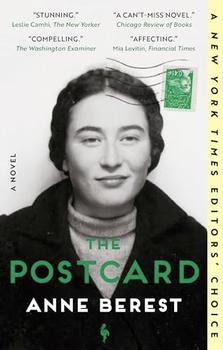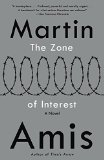Summary | Excerpt | Reviews | Beyond the book | Read-Alikes | Genres & Themes | Author Bio

A Novel of World War II
by Hubert MingarelliA miniature masterpiece, this is the spare, stunning story of three soldiers who share a meal with their Jewish prisoner and face a chilling choice.
One morning in the dead of winter, during the darkest years of World War II, three German soldiers head out into the frozen Polish countryside. They have been charged by their commanders with tracking down and bringing back for execution "one of them" - Jew. Having flushed out a young man hiding in the woods, they decide to rest in an abandoned house before continuing their journey back to the camp. As they prepare food, they are joined by a passing Pole whose virulent anti-Semitism adds tension to an already charged atmosphere. Before long, the group's sympathies begin to splinter when each man is forced to confront his own conscience as the moral implications of their murderous mission become clear.
Called 'masterly and necessary" by the Times Literary Supplement, A Meal in Winter recalls the claustrophobia of Roman Polanski's The Pianist and Louis Begley's Wartime Lies. A sleeper hit in the United Kingdom, this is the first novel by the award-winning French novelist Hubert Mingarelli to be translated into English.
Though brief, this is neither a fast, nor easy read. Mingarelli touches on so many inconsistencies within the human psyche, and so much cognitive dissonance. He explores how very treacherous the world is due to longstanding, yet misguided, ideals of masculinity and authority. The story inspires questions as to whether these ideals are outmoded and at odds with a civilized, modern society. The truths Mingarelli writes about are still too relevant for comfort. Read this at risk of Emmerich, Bauer and their unnamed friend haunting you for days, maybe weeks. But read this...continued
Full Review
 (664 words)
(664 words)
(Reviewed by Donna Chavez).
Hubert Mingarelli's characters in A Meal in Winter have to dehumanize an entire race of people in order to justify carrying out Hitler's mass genocide during World War II. The narrator of the story even goes so far as to resent the Jews because of the very details that remind him of their humanity – "a piece of embroidery, coloured buttons, a ribbon in the hair." He can't tolerate viewing them as human beings. That and the men's unimaginable nightmares about their horrific tasks notwithstanding, the three Nazi soldiers proceed to carry out their commandant's orders as best they know how.
 In the early 1960s, Yale University social psychologist Stanley Milgram, himself the son of Jews that escaped the ...
In the early 1960s, Yale University social psychologist Stanley Milgram, himself the son of Jews that escaped the ...

If you liked A Meal in Winter, try these:

by Anne Berest
Published 2024
Anne Berest's The Postcard is among the most acclaimed and beloved French novels of recent years. Luminous and gripping to the very last page, it is an enthralling investigation into family secrets, a poignant tale of mothers and daughters, and a vivid portrait of twentieth-century Parisian intellectual and artistic life.

by Martin Amis
Published 2015
Powered by both wit and compassion, and in characteristically vivid prose, Martin Amis's unforgettable new novel excavates the depths and contradictions of the human soul.
Most of us who turn to any subject we love remember some morning or evening hour when...
Click Here to find out who said this, as well as discovering other famous literary quotes!